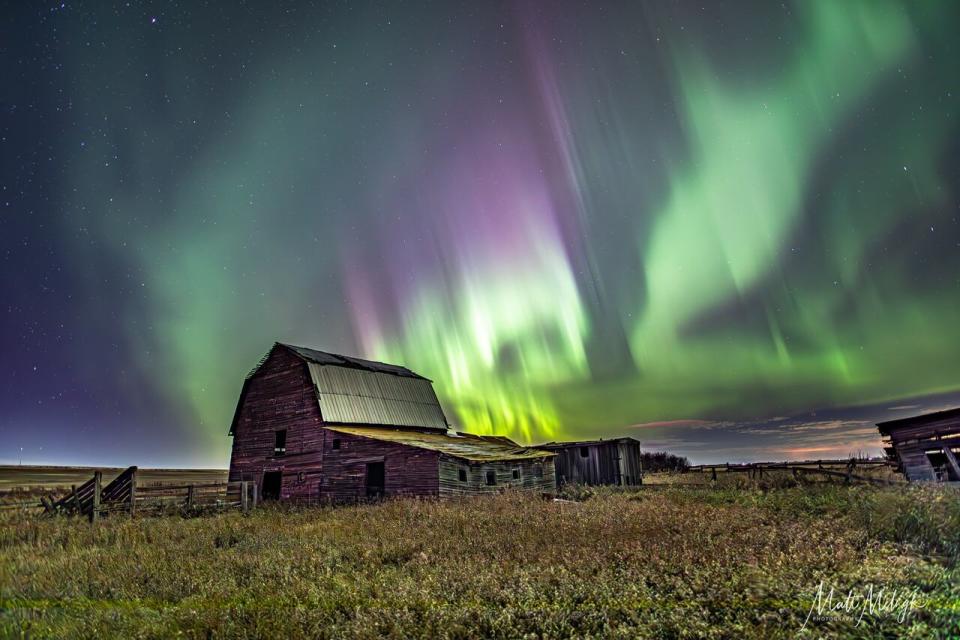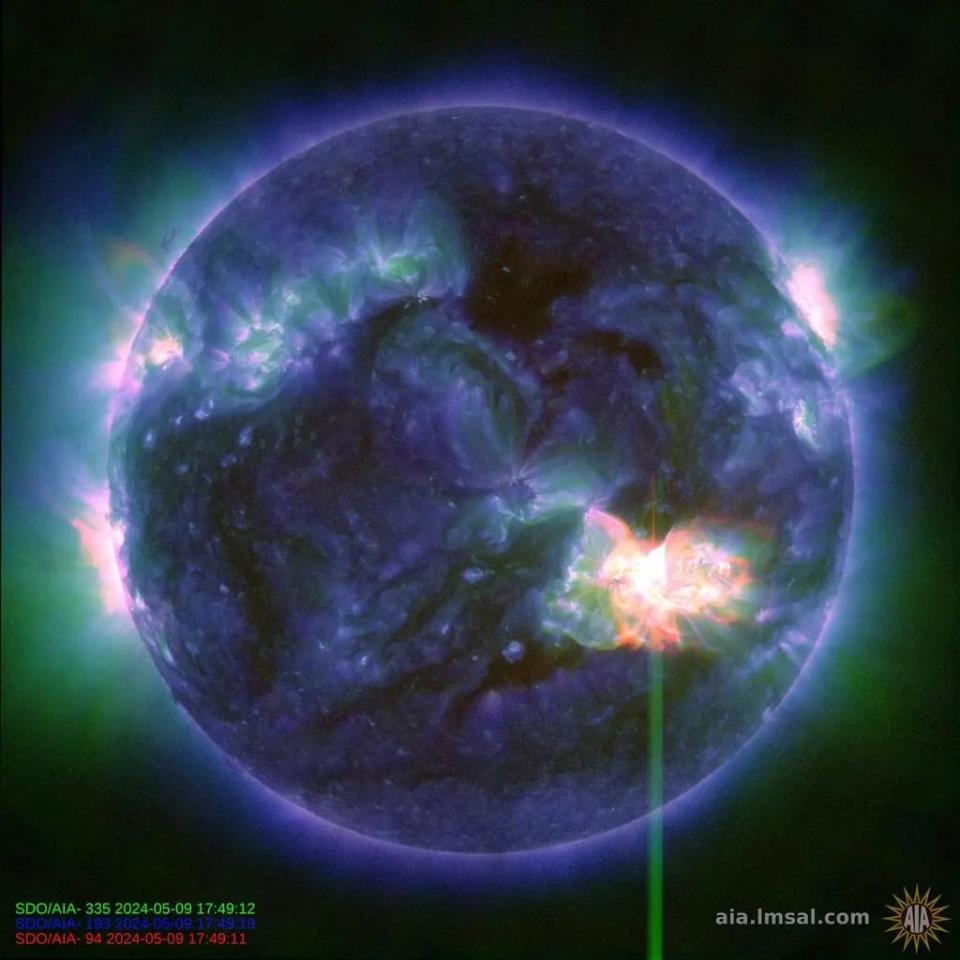Auroras could light up the sky Friday night

Northern lights are expected to illuminate Ottawa's sky Friday evening as a powerful geomagnetic storm ushers in the weekend.
On Thursday, the U.S. National Oceanic and Atmospheric Administration's Space Weather Prediction Center (SWPC) issued a geomagnetic storm alert in anticipation of this rare event.
Geomagnetic storms are classed by severity from G1 (minor) to G5 (extreme). The upcoming storm is classified as a "severe" G4, according to the SWPC. It's the first G4-level alert declared by the agency since January 2005.
Robyn Fiori, a scientist with Natural Resources Canada, said the storm actually arrived in Ottawa around 1:30 p.m. Friday.
"I definitely think there's a chance that we'll still see some Aurora tonight, and it's also possible that activity will reduce during parts of the day and then maybe start up again [Saturday] night," Fiori said.
The sky over Ottawa is expected to start clearing around 7 p.m. and clear completely by 11 p.m., according to Environment Canada.
Fiori advises Ottawa residents interested in viewing the northern lights to get out of the city and find an area of clear sky with minimal light pollution.
"The Aurora is something you can actually see from quite far away. In some cases, you can see it when it's up to 3,000 kilometres away from you, so your exact location isn't quite as important as the sky just being clear and the light pollution being reduced," Fiori said.
Fiori said geomagnetic storms typically last from one to six hours, but based on observations, this particular storm is predicted to last longer.

This image provided by NASA shows a solar flare, seen in the bright flash in the lower right, captured by NASA’s Solar Dynamics Observatory on May 9, 2024. (NASA/SDO/The Associated Press)
What causes geomagnetic storms?
The arrival of erupted solar material known as coronal mass ejection (CME) can result in a geomagnetic storm.
The current solar event started May 8, when a large and magnetically complex sunspot cluster 16 times the diameter of Earth produced "several moderate to strong solar flares," according to the SWPC. Solar flares are large explosions on the sun's surface that emit intense bursts of electromagnetic radiation.
Solar flares are frequently associated with CMEs, which are known to induce geomagnetic storms like the one expected to hit Earth this weekend.
According to SWPC, a minimum of five CMEs appear to be directed toward Earth and could arrive midday on Friday and persist through Sunday.
"We've had some pretty big CMEs make their way towards the Earth, and now we're seeing the start of a very large geomagnetic storm," Fiori said. "Right now, the geomagnetic activity is stretching all the way down to Ottawa."
'You'll never forget it'
Ottawa astronomer Gary Boyle said he's confident there will be an aurora display over the city.
"I expect a huge intensity." he said.
Boyle said the best viewing will be overnight.
"People mostly don't have to go work tomorrow so if you can stay up all night long ... you'll never forget it," he said.
Fiori warned geomagnetic storms can disrupt high-frequency radio communications used by the aviation industry, military and emergency responders.
"But a lot of these bigger effects on the infrastructure is something that these critical infrastructure operators are aware of, and they know about," she said.
"So for the average Canadian, just take the opportunity to look outside and maybe see the aurora."

 Yahoo Sports
Yahoo Sports 
